Eating Well Shouldn’t Cost the Planet
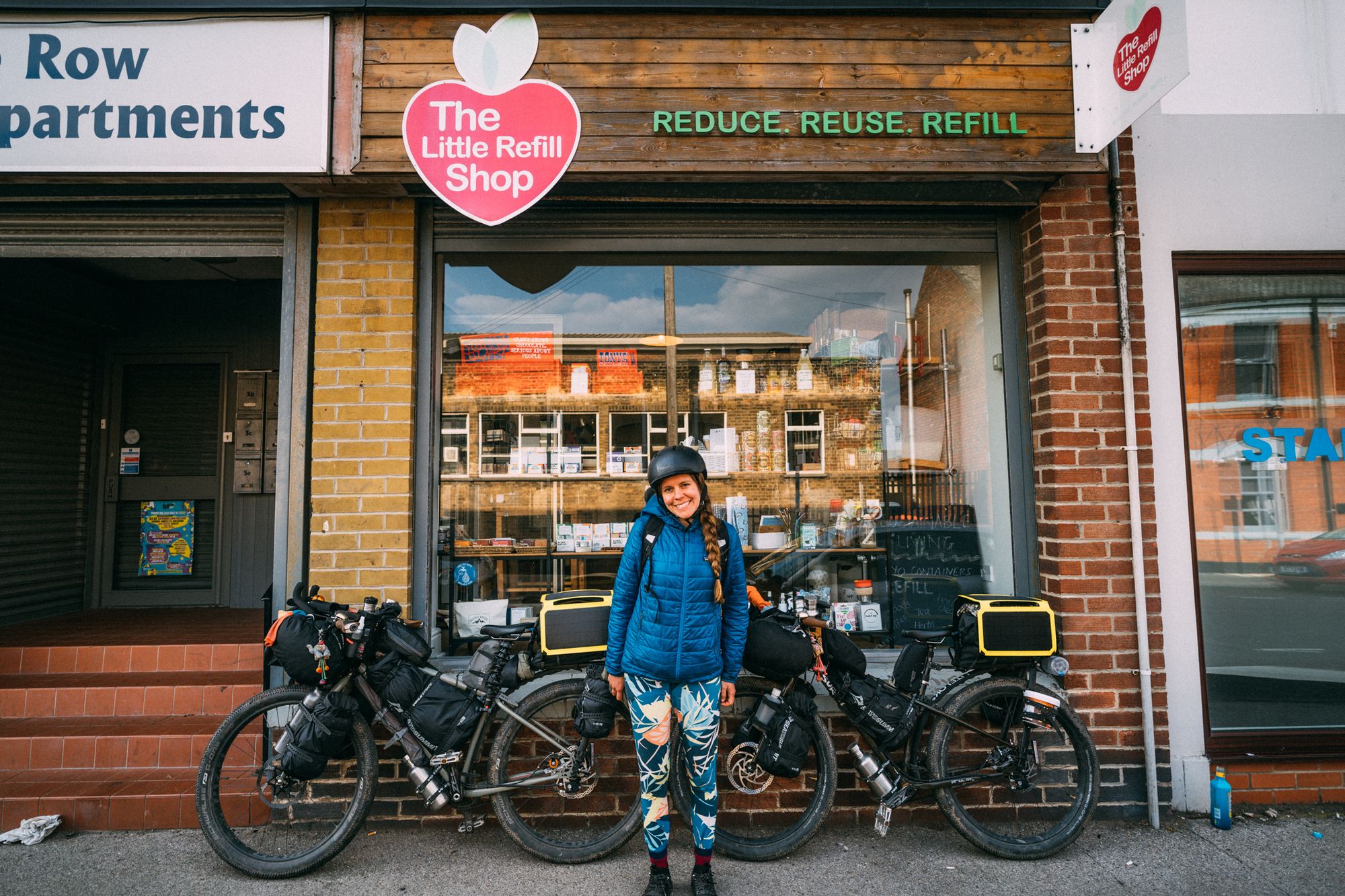
“Is this the right street?” I asked as Steven led us down a sleepy lane through the humble town of Seaham. There, nestled like a beacon between two stony buildings stood our brilliant destination with open doors. We were excited to visit our first zero waste shop on the journey, The Little Refill Shop.
Read on for photos and to learn more about the efforts of this zero waste shop to bring healthy products to people, reduce waste and support community well-being. They bring a lot of focus to eliminating plastic, but that’s just the beginning of what they do.
The Little Refill Shop of Seaham, England is one of many zero waste shops in the UK. Together they form a web of passion to improve lives and our natural world.
We met Kev, the co-owner of The Little Refill Shop, who gave us a lot of time and treated us to drinks as we toured the shop and refilled on some supplies. We could tell how much he cares about their lovely shop and the people they serve. As their website states,
Eating well shouldn't cost the planet.
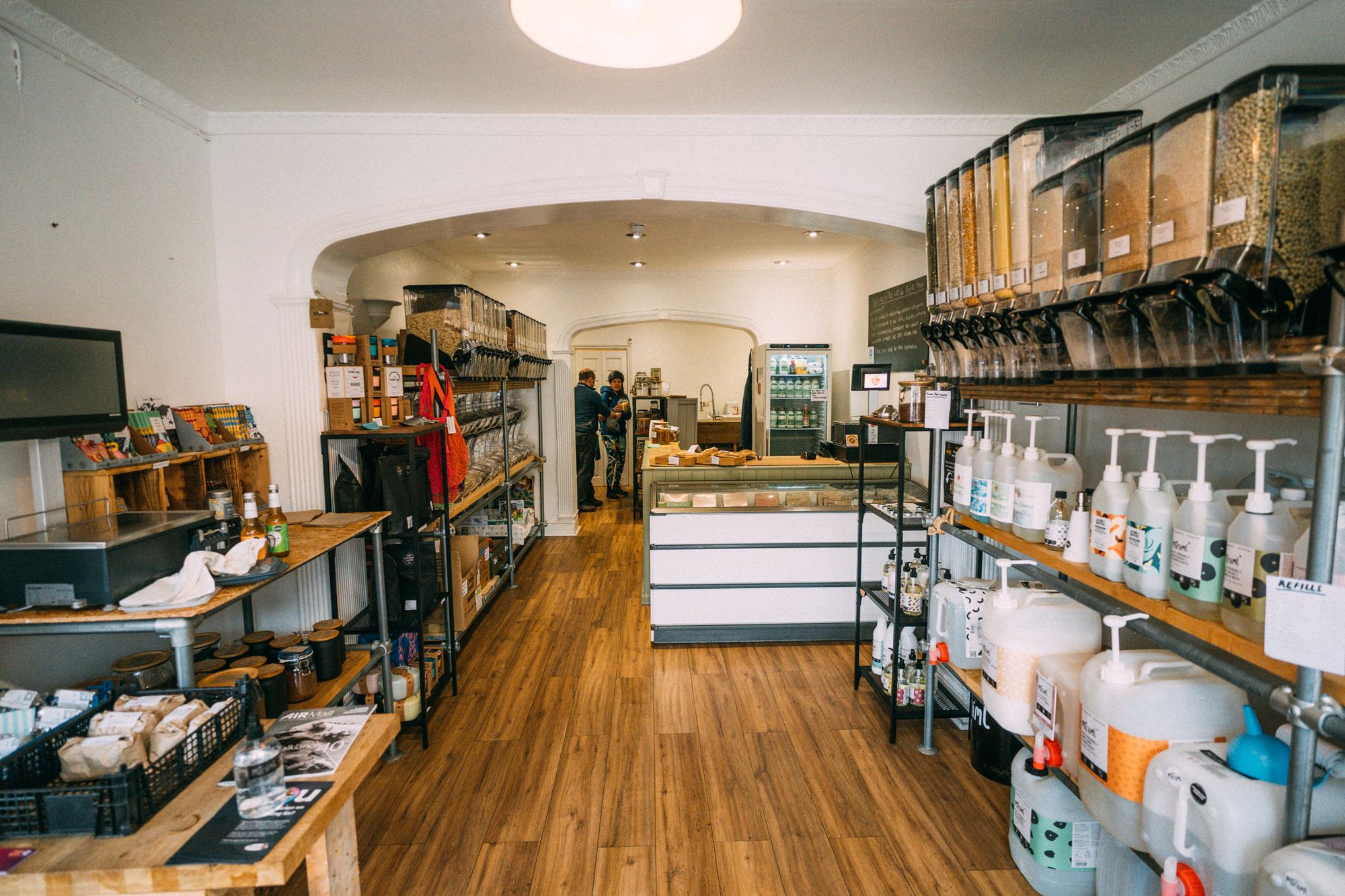
What About Plastic?
The shop eliminates nearly all single-use plastic by having products delivered in bulk and stored in refillable bins. Customers bring their own reusable containers.
• 75% of produce delivered in recyclable cardboard.
• 20% packaging is in a loop system and taken back and reused by suppliers.
• 5% is plastic, recycled via Suez, a resource management company.
• Cardboard is reused, donated or used as mulch on their vegetable plots as
much as possible.
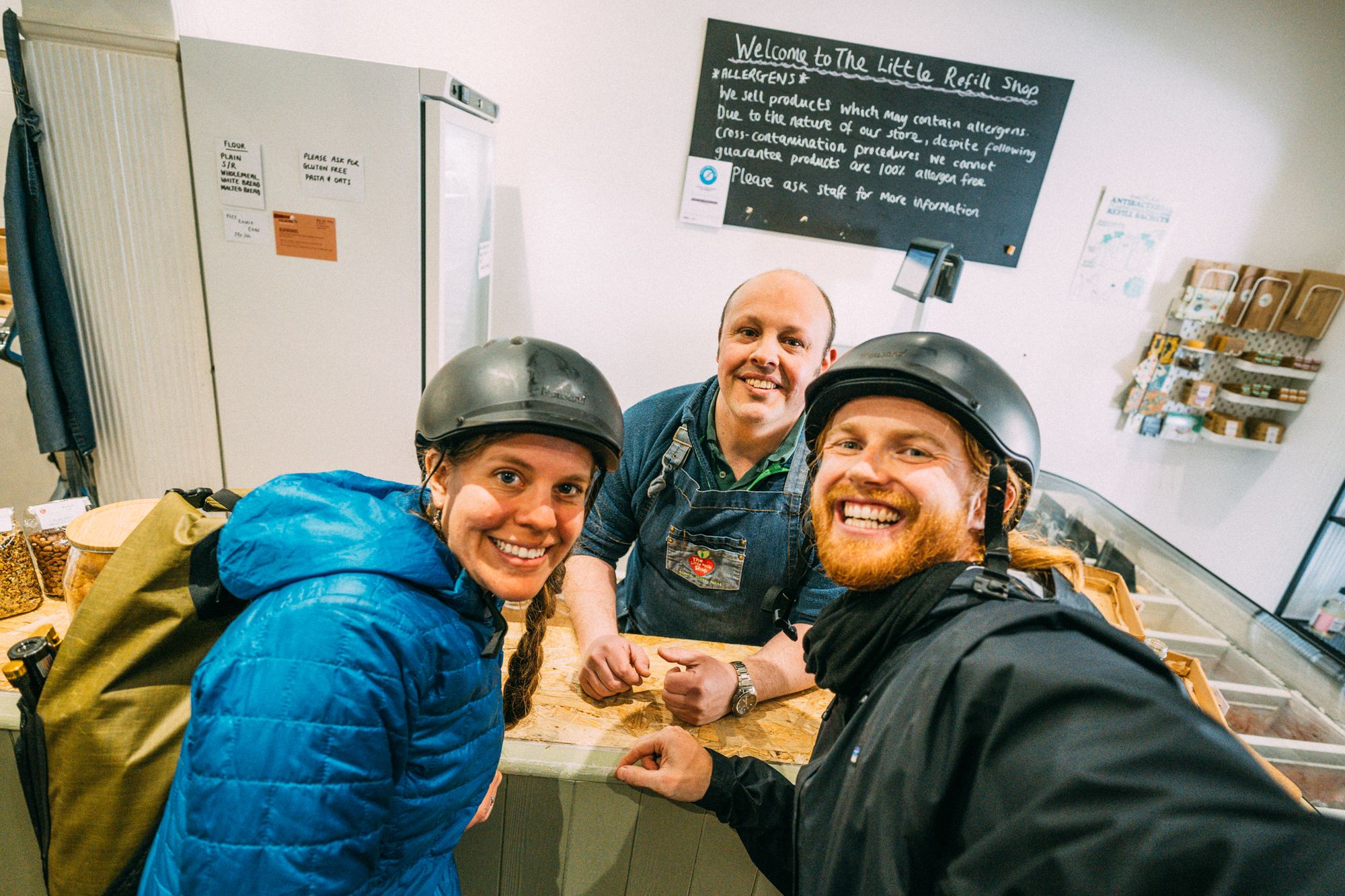
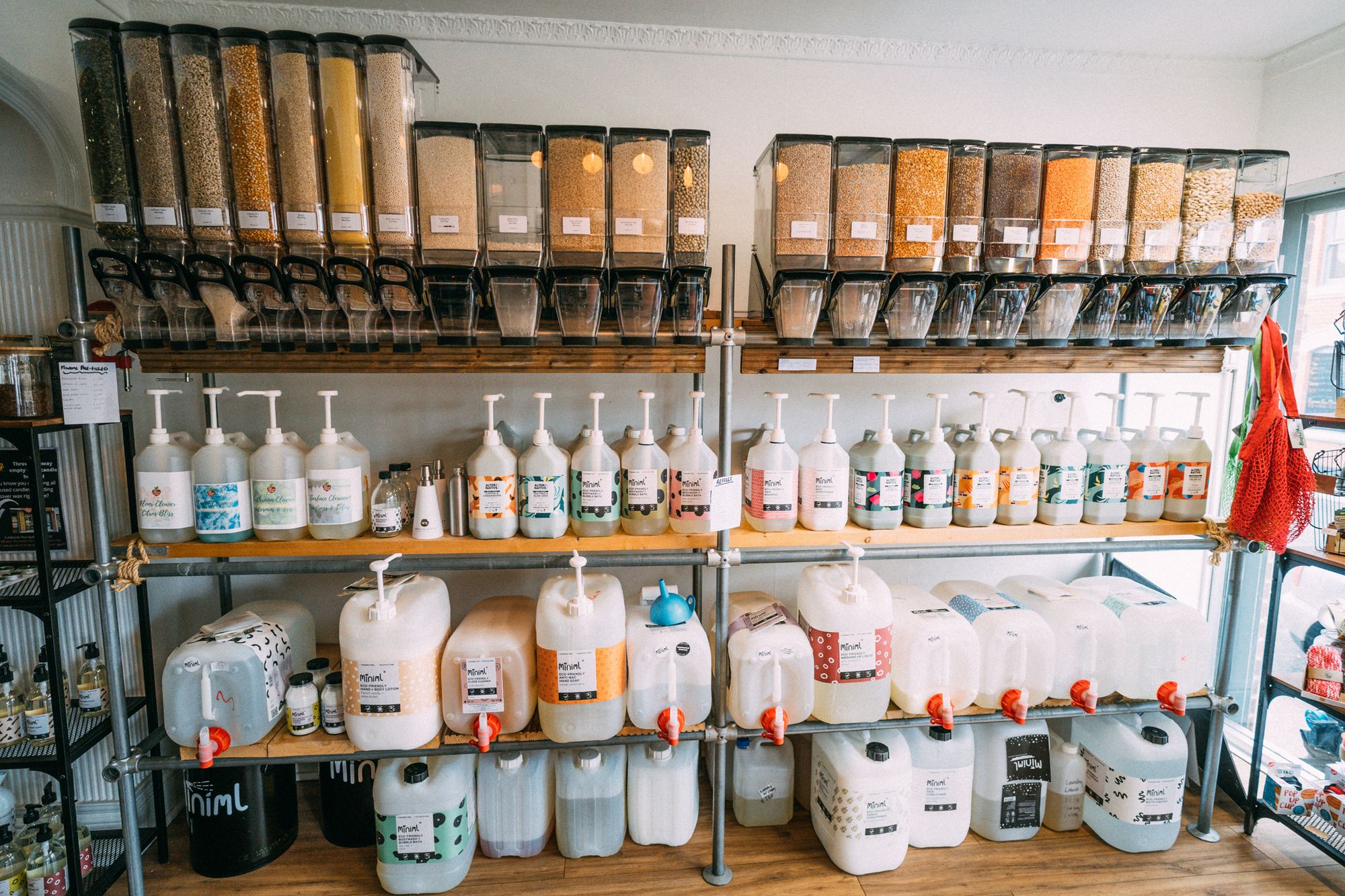
Energy
• 100% of electricity is from renewable sources.
• The shop implements practices around reducing indoor lighting and having
scales that go to sleep.
• There is no AC or heating directly in the shop.
Food waste
• Food that is close to reaching its expiration date is donated.
• Expired food is taken home rather than binned.
• Even spilled food goes to the compost bin.
Challenge: Do you know of Zero Waste shops near you?
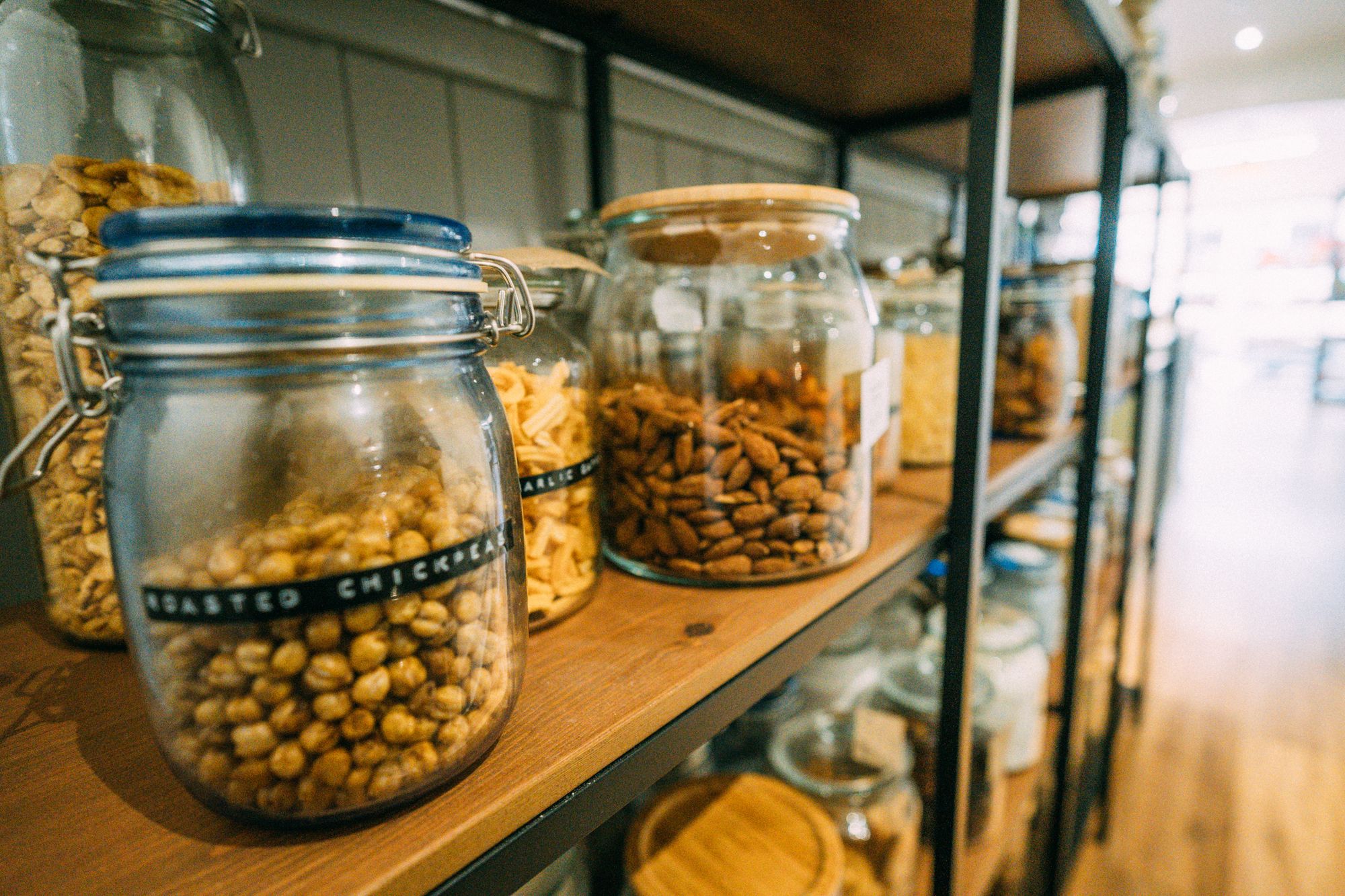
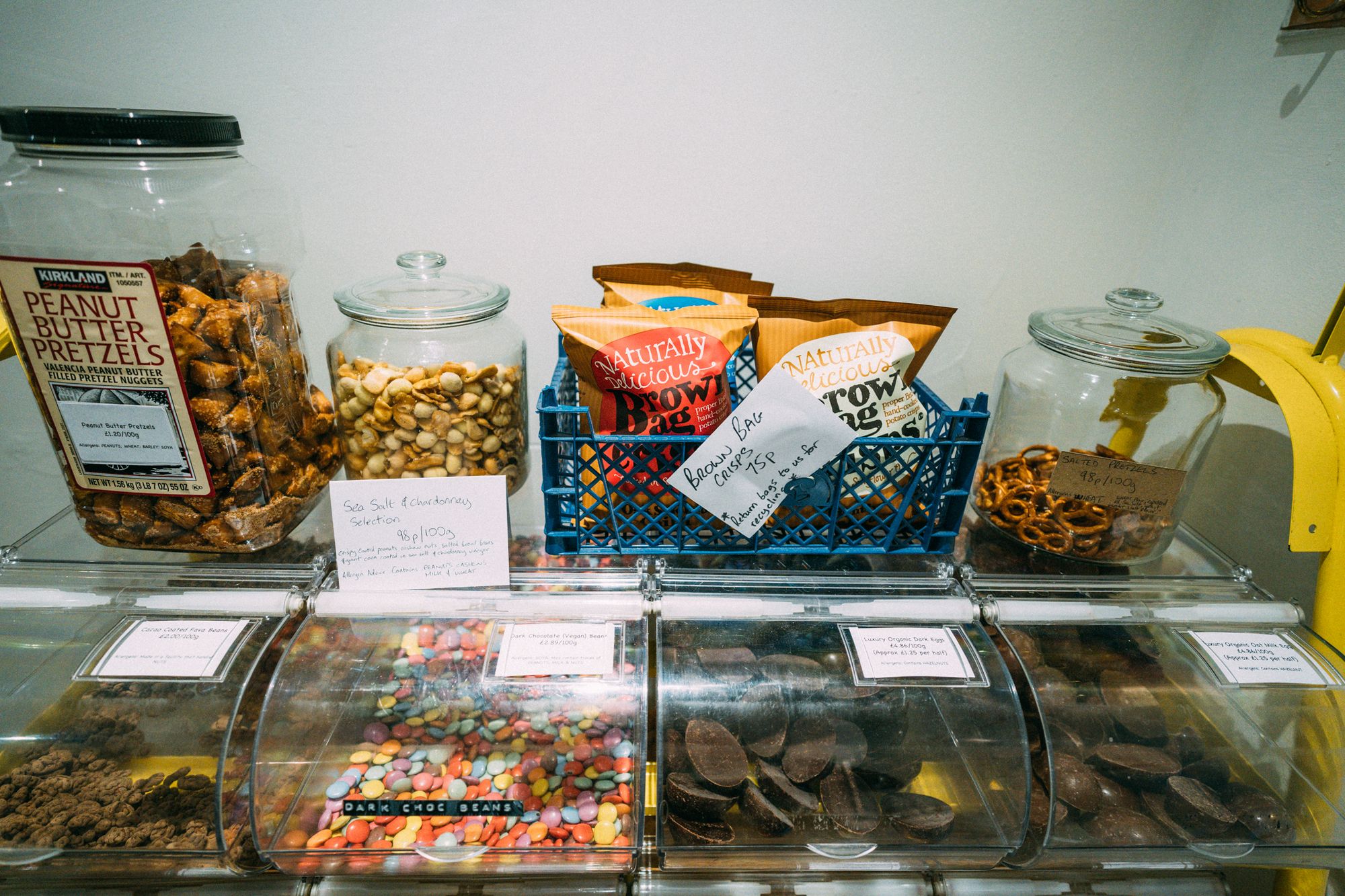
Community
It's clear the owners are running this shop to help the community, often stocking from local suppliers and donating to those in need. Most zero waste shops proudly advertize the stories of their suppliers and also serve as a hub for learning about local wellness workshops, retreats, community events and other social gatherings.
You get to know the people who work at these small shops and there's something nostalgic about that, in a way that's no going back in time, but renewing an aspect of life we truly depend upon. Friendship and warmth in our communities.
Health
Most of the products sold are from eco and ethically conscious brands. These companies care about the health of their customers. The zero waste philosophy is underscored by a desire to take care of our natural world. Naturally, as part of Nature, this care extends to us humans.
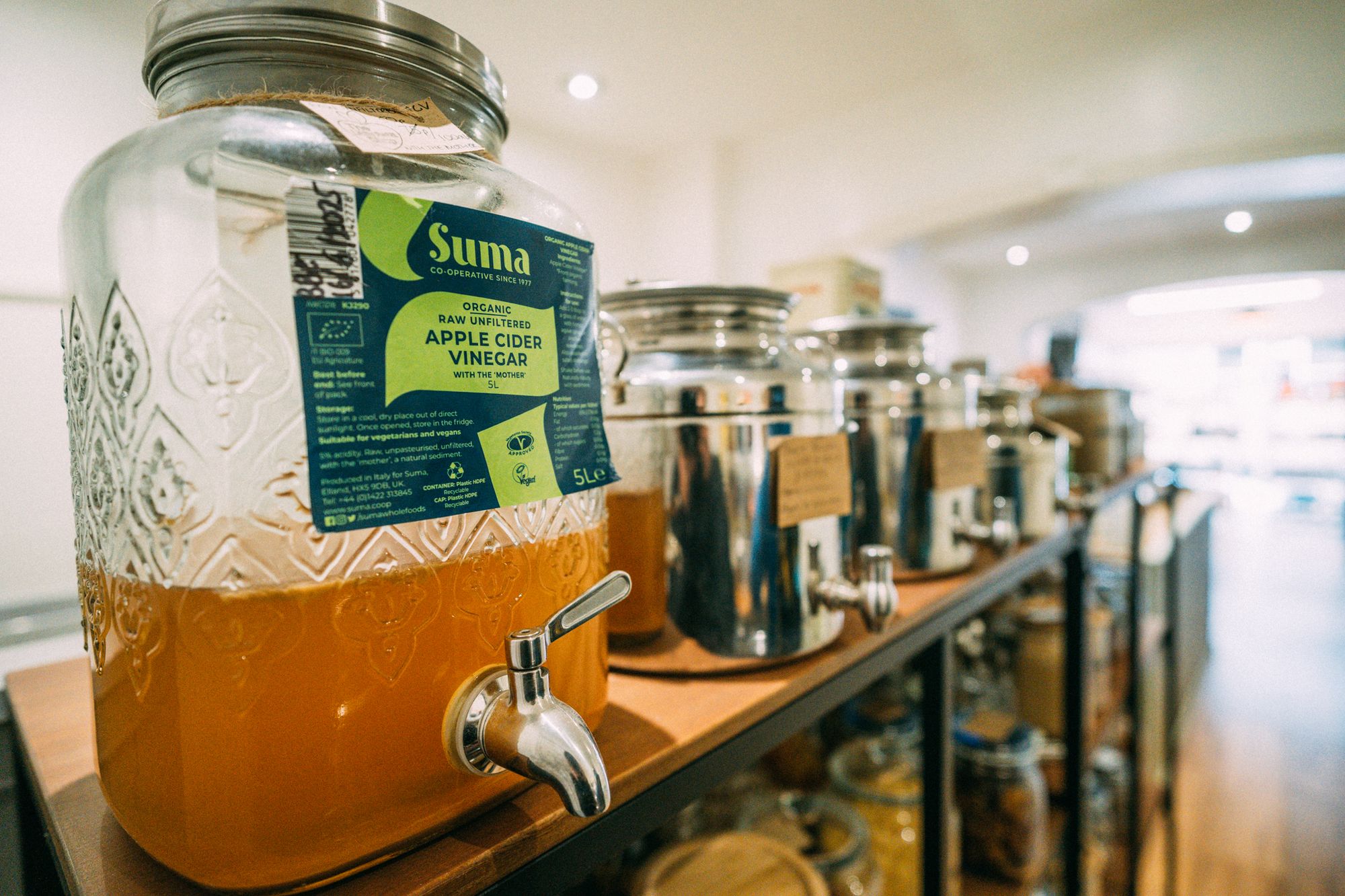
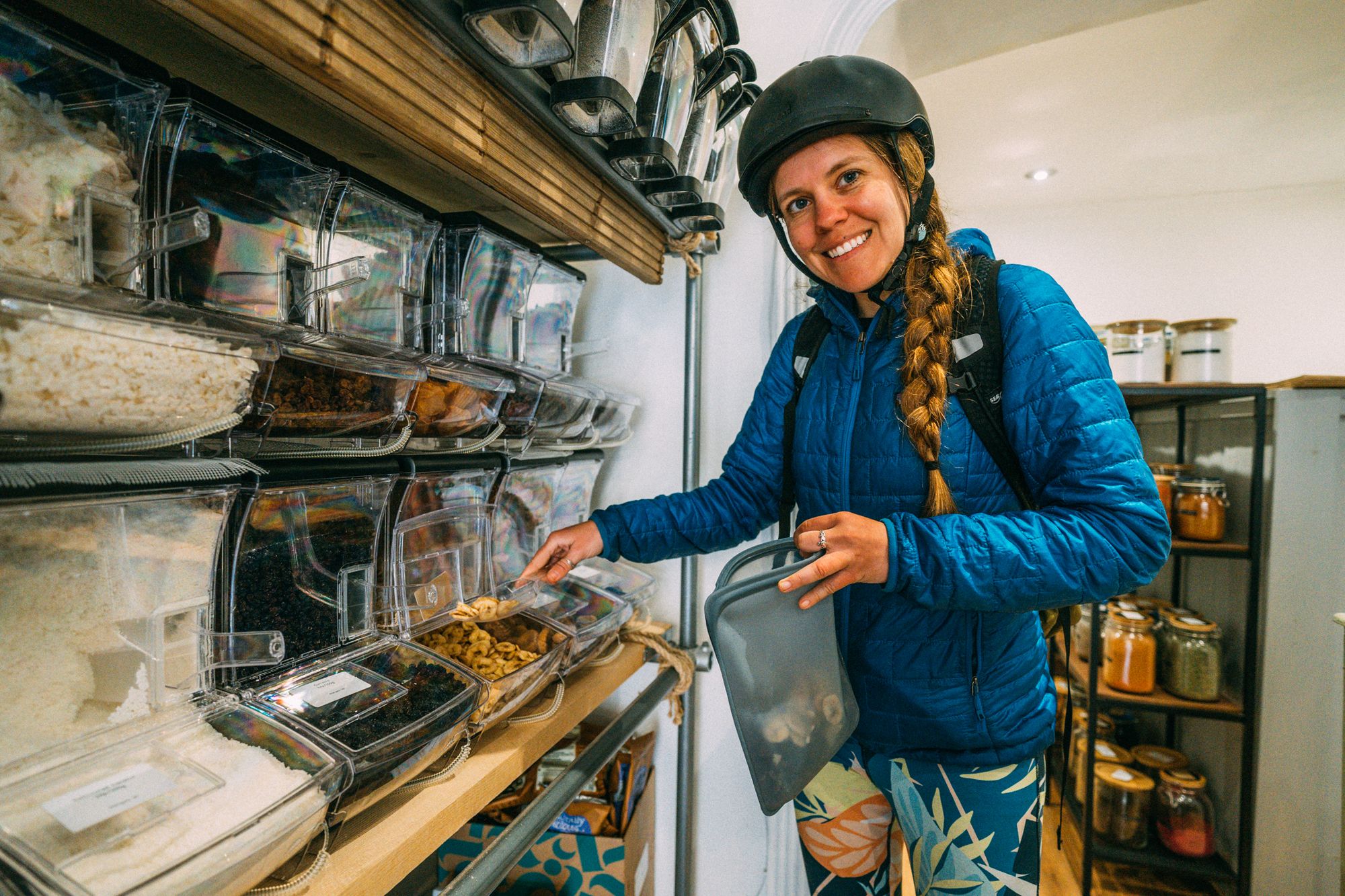
Affordable?
Zero waste shops sometimes have the reputation of being costly. Shop owners try to keep costs down to help their customers, motivated by passion to help make the
world a better place.
If these shops do have a reputation for being expensive, it's because large supermarkets are able to reduce prices through the massive supply and demand trade which is harming our communities.
We visited several more zero waste shops around the UK and found they all shared similar values. These shops feel like warm havens in a sea of mindless consumerism; they are powered by compassion and the will-power to help make the world a better place. It’s truly amazing what a small group of dedicated people can do.
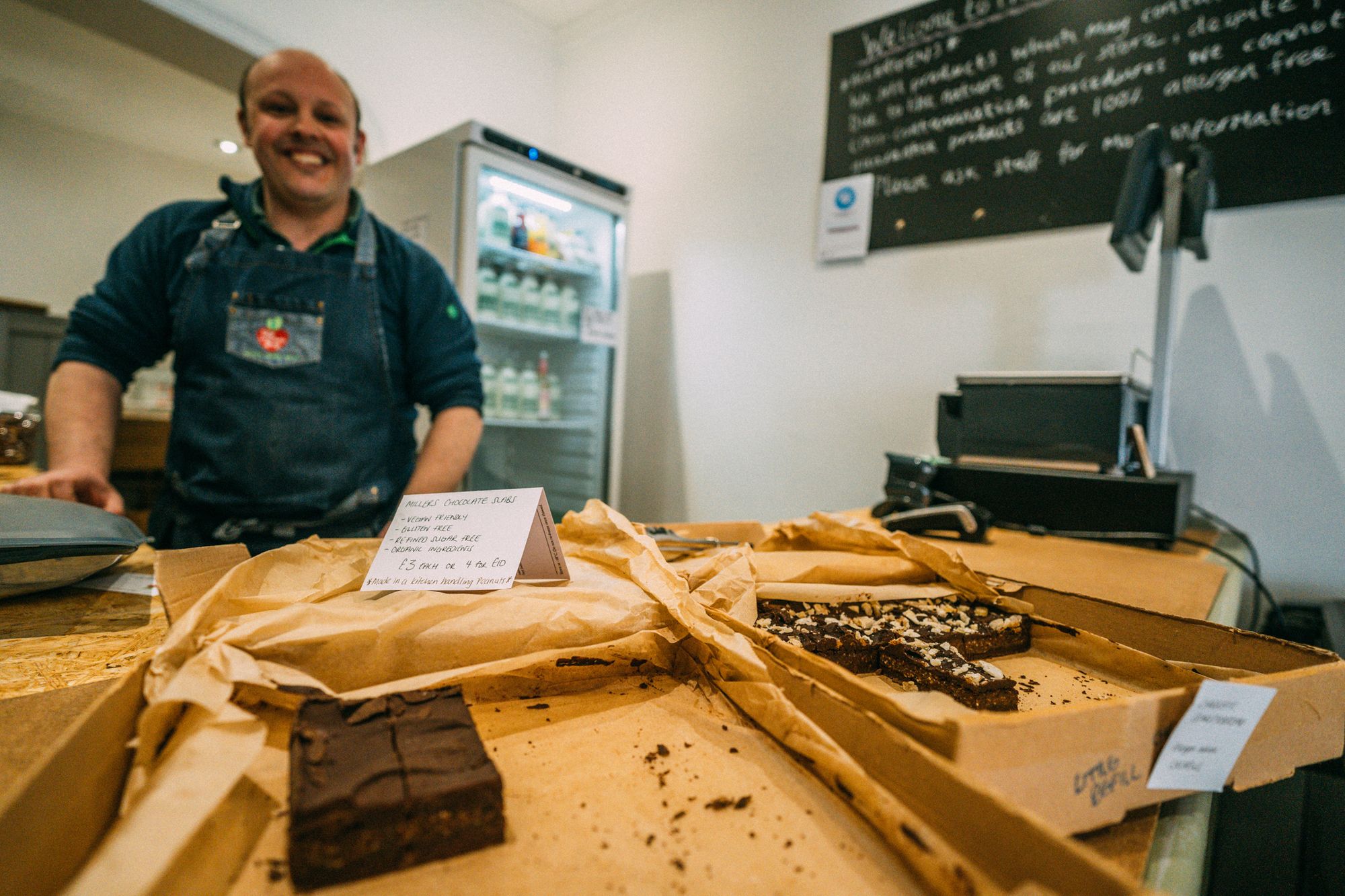
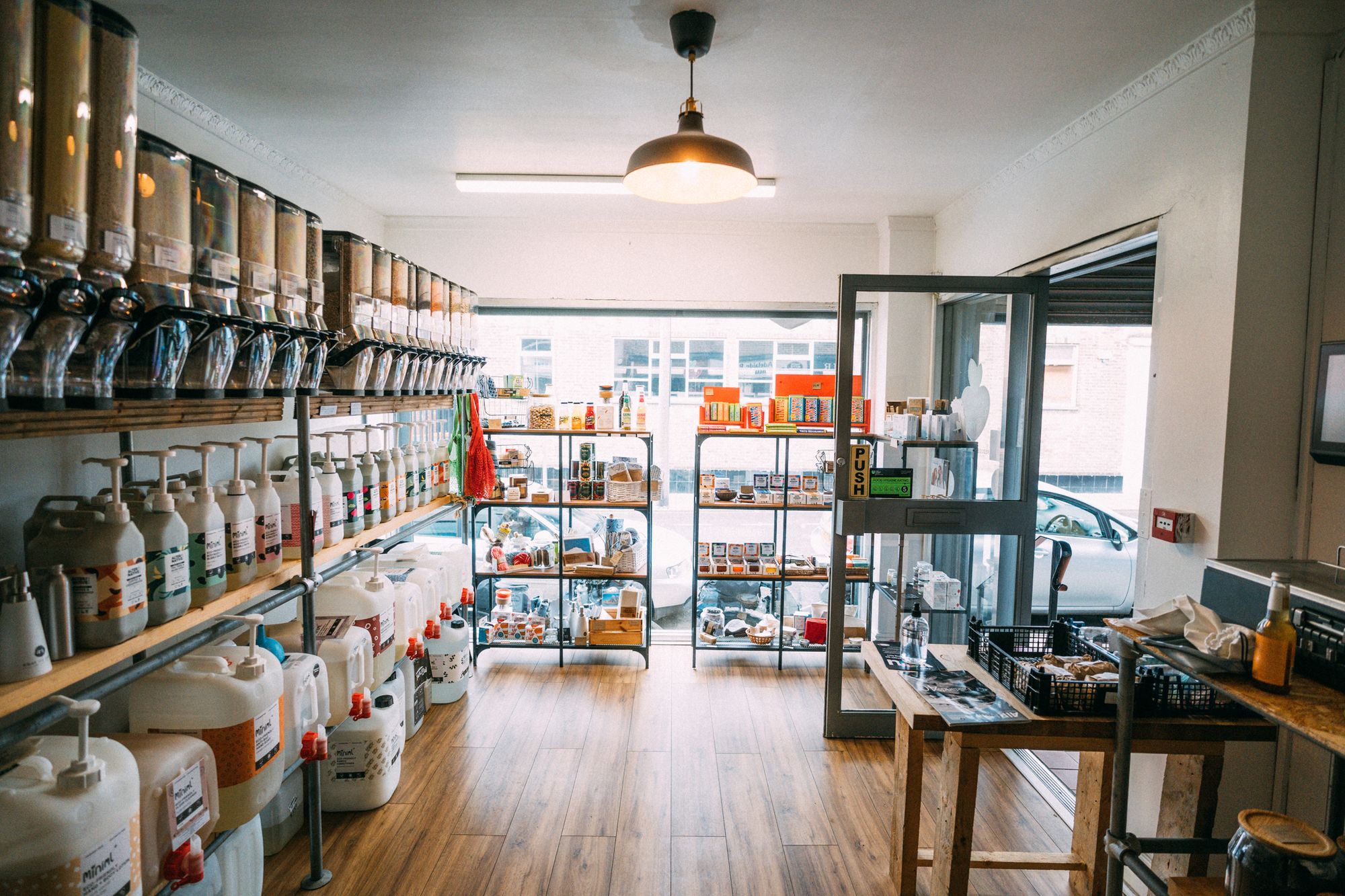
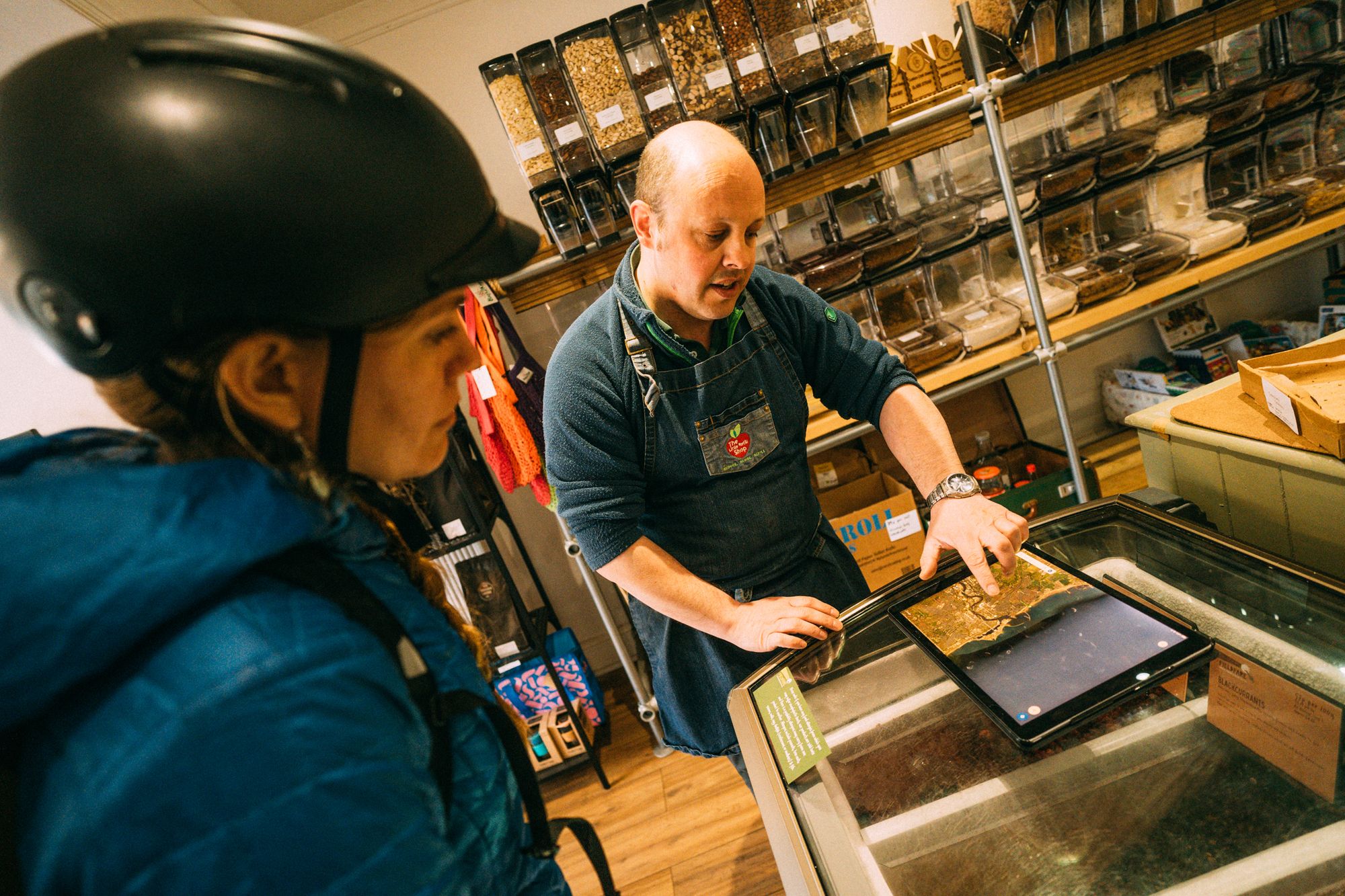
While zero waste shops are not a perfect solution, they sure do take several leaps in the right direction. They do the best they can in an imperfect system, finding ways to stock eco friendlier and local brands, while supporting artisans and local people. Whether it’s through donating food or stocking a lot of vegan options, it simply feels good to be in places with so much heart.
Thank you Kev for the wonderful tour and sharing more of the story with us. We also found a great campsite that night thanks to your help!
Source: The Little Refill Shop
Written by Karla Sanders @karlasandersart | Photos by Steven Tiller @steventiller
